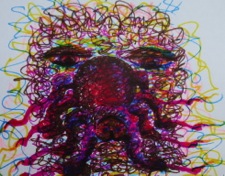 DEUTSCH
DEUTSCHStijn Bruers
On the use of animals
At least two ethical principles determine the permissibility of the use of non-human animals: the mere means principle which refers to the basic right not to be used against one’s will for someone else’s ends, and the justice principle which refers to a just distribution of lifetime well-being, giving priority to the welfare of the lowest positions (e.g. the worst-off animals).
When we apply those principles to the use of humans (e.g. babies and mentally disabled humans), we come close to the rules that are valid in our modern western society. But those two principles should be applied non-arbitrarily to everyone and everything. As a result, we are not allowed to use sentient non-human animals in ways that we would not allow with humans.
What about plants? As far as we know, conscious experiences are always correlated with brain activities, and plants lack brains. Plants can process information like strong computers or our immune systems, but we don’t believe that computers or our immune systems are sentient. Moreover, if plants were conscious beings, it is not clear how plants would experience a unity of consciousness when they can be split in several ways. More…




